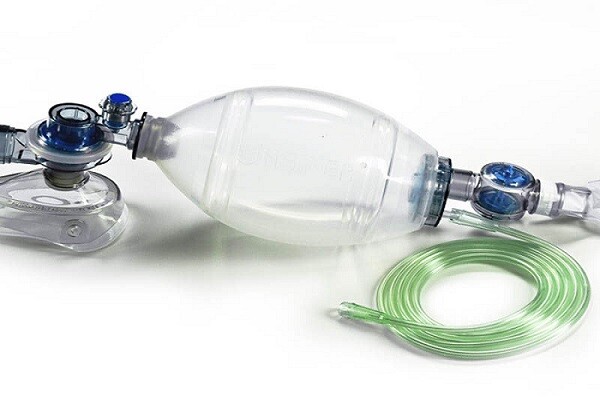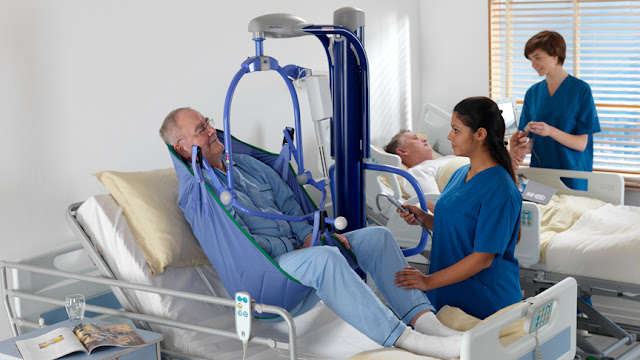RFID Technology Transforming Healthcare Industry
 |
| RFID Technology |
Radio Frequency Identification or RFID technology has been around for decades
but its application in healthcare sector is rather recent. This inexpensive tracking
technology is fast gaining ground and transforming various aspects of
healthcare from patient tracking to equipment management. RFID has potential to
streamline operations, improve patient safety and enhance efficiency.
RFID for Patient Tracking
One of the biggest challenges hospitals face is locating patients in emergency
situations. With thousands of patients moving around different departments and
floors daily, it becomes difficult to keep track manually. RFID
tags attached to patient's wrist helps address this issue. The tag contains a
unique ID that can be read by RFID readers installed at entry/exit points. This
enables real-time tracking of patient's location.
During emergencies like fire or earthquake, locating and evacuating all
patients become critical. With RFID, medical staff can quickly scan tags and
account for everyone. Some hospitals also use RFID to track high risk patients
prone to wandering like dementia or Alzheimer's patients. If a tagged patient
moves to an unauthorized area, the system can alert staff immediately. RFID is
thus enhancing patient safety and comfort in hospitals.
Managing Medical Equipment and Supplies
Hospitals invest huge amounts in medical equipment but tracking their location
and usage has always been a challenge. With traditional barcode systems,
equipment needs to be physically scanned at pick-up and drop-off points. RFID
provides a more effortless solution.
All medical equipment can be tagged and their location tracked automatically as
they pass through RFID readers installed at entry/exit of departments, storage
rooms and even elevators. This helps reduce equipment downtime in locating
missing or misplaced items. Hospitals can also analyze usage data to optimize
equipment allocation. Asset management becomes more efficient as items never
need line-of-sight scanning.
Similarly, managing expiration of drugs and medical supplies spread across
multiple floors and speciality departments is a gargantuan task. With drugs and
items tagged, hospitals can centrally monitor their shelves life and automate
replenishment processes. Staff is also alerted in real-time about expired or
recalled items that need discarding immediately. This significantly reduces
risks of outdated materials being used on patients.
Streamlining Clinical Workflow
RFID is enhancing workflow efficiency in many clinical settings. In operating
rooms, surgeons traditionally spend valuable time verifying patient's identity
and surgical site before starting a procedure. RFID patient wrist tags when
scanned confirm the right patient is in the right place for the right surgery
reducing risk of errors.
Similarly, tagging blood samples and blood bags helps ensure right blood is
transfused to the right patient. Scanning tags at pre-transfusion verification
checkpoints removes manual error possibility. Some leading hospitals have even
implemented RFID enabled surgical sponge counting systems. Cloth tags embedded
in one side of sponges helps track count digitally ensuring no items are left
inside patient after procedure ending malpractice claims.
The technology is also finding applications in linen and laundry management. By
tagging linen items, hospitals can automate sorting of soiled and clean linen
eliminating manual counting tasks. Overall RFID is digitizing workflows,
enhancing compliance to processes and protocols as well as improving workflow
productivity in clinical departments.
Data Analytics for Better Healthcare Delivery
One of the key advantages of RFID is the wealth of real-time data it generates
on asset and patient movement across facilities. This data combined with
Electronic Health Records opens up opportunities for analytics and actionable
insights.
Hospitals are analyzing anonymized RFID data to map popular patient pathways
and bottlenecks. This helps redesign floor plans and workflows for smoother
movements. Equipment utilization patterns reveal underused and over utilized
devices aiding procurement decisions. Patient tracking insights help plan
staffing needs based on occupancy patterns.
Pharmaceutical companies are also partnering with hospitals to gain supply
chain visibility using RFID data. This helps optimize distribution and fulfillment
processes. With growing emphasis on value-based care, RFID data driven insights
will play a key role in cutting costs and improving outcomes across the
healthcare system.
Regulatory Compliance and Beyond
Considering the sensitive nature of healthcare operations, hospitals must
adhere to strict compliance and regulations for patient safety and privacy.
RFID powered real-time location systems help meet regulatory mandates for
tracking controlled substances and assets like wheelchairs, crutches etc.
Automatic scanning and alerts ensure staff follows safety protocols.
While the technology is still in initial adoption phase in developing
countries, RFID promises to revolutionize various facets of global healthcare.
The future will see more innovative applications like smart pills with embedded
sensors to track dosage intake remotely and smart Band-Aids that monitor wound
healing. Pervasive deployment of miniaturized RFID chips will bring
unprecedented visibility offering new opportunities for patient-centric,
value-driven care models. RFID indeed holds potential to transform healthcare
into one seamlessly integrated, data-driven industry.
For
more details on the report, Read- https://www.trendingwebwire.com/rfid-in-healthcare-trends-size-and-share-analysis/



Comments
Post a Comment